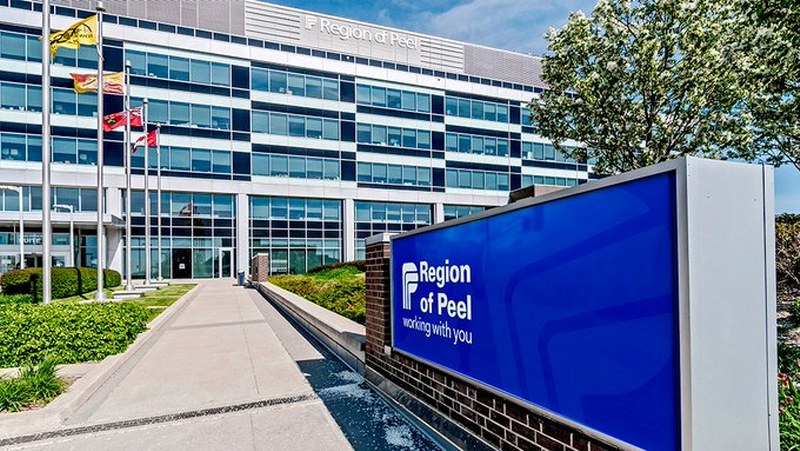Canada: Ontario plans to dissolve Peel Region, to make cities independent by 2025

Ottawa/IBNS: Ontario government's recently introduced Hazel McCallion Act, which, if passed, would begin the process of dissolving the Regional Municipality of Peel and make the municipalities of Mississauga, Brampton and Caledon independent, a news release has said.
Tabled at Queen’s Park Thursday afternoon, the legislation kicked off the process by creating a transition board to help “ensure the process is fair and balanced.”
The legacy of Peel Region’s longest-serving mayor, the late Hazel McCallion — central to the region’s remarkable growth during her 36 years as Mayor of Mississauga and a long-time advocate for greater autonomy for her city — is honored by the proposed legislation.
To be established sometime this year, this board appointed by the minister of municipal affairs and housing, would consist of up to five members, with expertise in labour, governance and finance.
It would make recommendations to the province to help Mississauga, Brampton and Caledon in summer or fall of 2024 to prepare to become single-tier municipalities on January 1, 2025, when the proposed changes, if passed, would come into effect
Names of the members of the board will be released in the coming weeks.
A large portion of their tax revenue is contributed by all three municipalities in Peel towards the region as a whole with Brampton providing nearly 40 percent of its tax revenue to the region, and Mississauga contributing 45 percent.
It is reportedly unclear how Caledon, making up about 56 percent of the land area of Peel Region, will be impacted financially.
While ensuring the continuation of high-quality services for taxpayers, and improving the efficiency of local governments, the province’s plan would also prepare for future growth, including their municipal housing pledges.
Subject to these cities’ becoming independent, these services will most likely rest solely on the municipalities, and during the transition, officials stressed Thursday that they expect local services to continue uninterrupted .
It is reportedly possible that some services such as police and utility rates for water services could remain regional.
The Bill was announced at a news conference by Steve Clark, Minister of Municipal Affairs and Housing alongside Mississauga Mayor Bonnie Crombie and Brampton Mayor Patrick Brown.
Speaking at Queen’s Park Thursday, Clark said Peel region, which is already home to 1.5 million people, will grow by half a million people in the next two decades and that those people will need homes to live in.
“The Region of Peel includes some of the largest and fastest-growing municipalities in Canada and is poised for significant growth over the next decade. Our government is supporting this growth by cutting red tape and improving efficiency while maintaining and improving the high level of local services Mississauga, Brampton and Caledon residents rightly expect,” said Steve Clark, Minister of Municipal Affairs and Housing in a news release.
Where there are shared assets and services, the dissolution process would help ensure an equitable outcome for all residents that preserves their access to municipal services regardless of location.
Regional facilitators would be named by the province in the coming weeks to assess the upper-tier municipalities of Durham, Halton, Niagara, Simcoe, Waterloo and York.
These facilitators will be reviewing the relevancy of the upper-tier government to the needs of its communities or if the lower-tier municipalities are mature enough to pursue dissolution.
Subject to the requirement of a two-tier government, the facilitators would make recommendations on how to effectively respond to the issues facing Ontario’s fast-growing municipalities today, particularly in meeting municipal housing pledges and tackling the housing supply crisis.
Boosting housing supply as a primary justification for splitting up Peel, the Doug Ford government noted that housing starts in 2022 increased by nearly nine percent.
(Reporting by Asha Bajaj)



